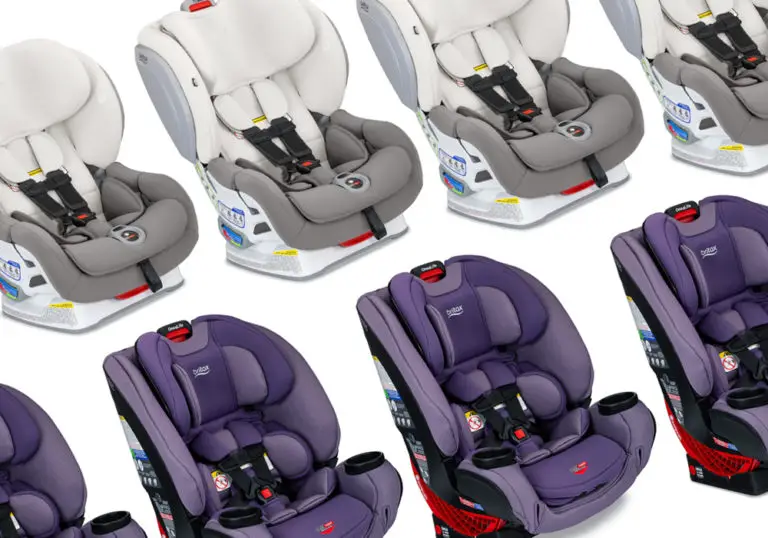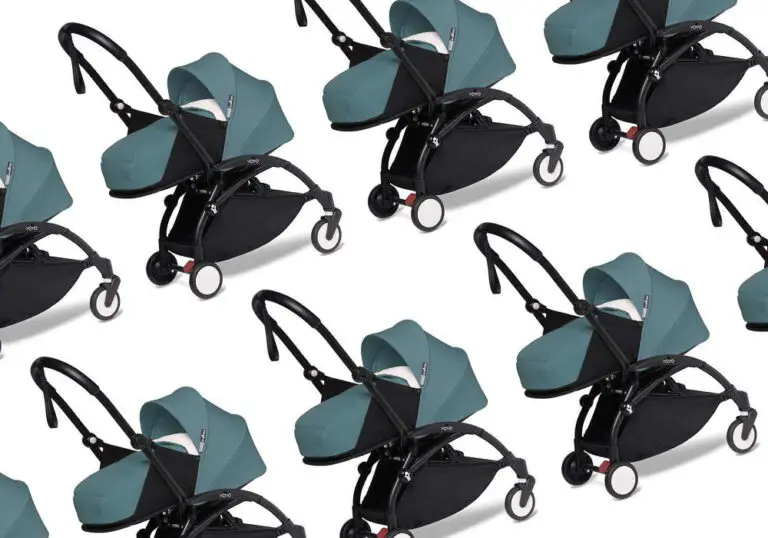Kansas Car Seat Laws 2024 (Rear, Forward & Booster)

Under Kansas car seat laws, all children under 14 years of age have to be properly restrained in a car seat or a seat belt. The driver of the vehicle will be held responsible for any violation of the law. They will be penalized $60.
Disclaimer: This content does not constitute legal advice. It is solely for informational purposes. Always check the original source of the law for the latest version.
- Rear-Facing
- Forward-Facing
- Booster
- Front Seat
- Seat Belt
- Taxi Seat
- Ridesharing Seat
- Replacement
- Alone in Car
- Choosing a Seat
- Installation Help
Kansas Car Seat Laws
Kansas Rear-Facing Car Seat Law
There is no definite rear-facing car seat law in Kansas. The child seat requirements in Kansas state that all children under 4 years of age must be properly restrained in an appropriate car seat. (1)
Though the rear-facing car seat age in Kansas is absent, the Kansas Highway Patrol recommends keeping children less than 1 year old in an infant rear-facing seat. (2) It is safest to keep your child in a rear-facing seat for as long as possible. They should remain in it till they reach the maximum height or weight limits prescribed by the set manufacturer.
Even though there is no specific Kansas rear-facing child seat law, a violation of the above requirements will attract a penalty of $60. (3) The motor vehicle driver will have to pay.
Age: Newborn to 1 year
Penalty: $60
Kansas Forward-Facing Car Seat Law
According to the forward-facing car seat law in Kansas, children younger than 4 years should be secured in a forward-facing seat with a harness. (1)
Though the forward-facing car seat age in Kansas is 4 years, the Kansas Highway Patrol recommends keeping your child in the forward-facing seat till they reach its maximum height or weight limits. (2) This is in accordance with the recommendations of the National Highway Traffic Safety Administration (NHTSA).
If your child outgrows the seat before turning 4 years old, you may consider a seat with a harness for higher heights and weights.
Disobeying Kansas forward-facing child seat law will attract a penalty of $60. (3) This fine will be waived if you can prove to the court that you have acquired an approved child restraint.
Age: Younger than 4 years
Penalty: $60
Kansas Booster Seat Law
According to the child booster seat law in Kansas, all children under the age of 8 years who weigh less than 80 pounds or are shorter than 4’9” must be secured in a booster seat. (1) Depending on your requirements, it can be a high back or backless booster seat.
The booster seat age in Kansas is 4 to 8 years. However, your child should shift to a booster only after they exceed the maximum height or weight limits of their forward-facing seats. They should continue riding in a booster seat till they reach 4’9” in height or can wear the seat belt properly.
A violation of Kansas booster seat requirements carries a fine of $60. (3) It can be waived if you can prove to the court that you have acquired a federally-approved booster seat.
Age: 4 to 8 years
Height: Shorter than 4’9”
Weight: Less than 80 pounds
Penalty: $60
Kansas Child Front Seat Law
There is no definite child front seat law in Kansas. However, the Kansas Highway Patrol recommends keeping children in the backseat till they are at least 12 years old. (2) The American Academy of Pediatrics (AAP) also recommends keeping children younger than 13 years in the backseat.
If you are carrying your child in the front seat, you must secure them in a child restraint that is appropriate for their height and weight requirements. The passenger-side airbag must be deactivated as airbags can injure small children. The vehicle seat must be pushed as far away from the dashboard as possible.
Even though the front seat age in Kansas is not mentioned, it is best to follow the guidelines of the AAP and Kansas Highway Patrol.
Age: 13 years (recommended)
Kansas Child Seat Belt Law
According to the child seat belt law in Kansas, all children who are 8 years old but less than 14 years old or who weigh more than 80 pounds or stand taller than 4’9” have to wear an adult safety belt. (1) They have to follow these requirements regardless of whether they are in the front seat or the backseat.
To ensure compliance with seat belt rules in Kansas, you must ensure that the seat belt fits your child properly. The lap and shoulder belts should lie snugly across their upper thighs and shoulder and rest, respectively. (2)
Kansas has a primary seat belt law, meaning the police can stop you if your child is not wearing a seat belt. A violation of Kansas children’s seat belt law carries a fine of $60. (3)
Age: 8 to 14 years
Height: 4’9” or taller
Weight: 80+ pounds
Penalty: $60
Kansas Taxi Child Seat Law
According to the taxi child seat law in Kansas, taxis are required to have car seats for a child passenger.
Kansas state law requires all children under the age of 14 years to be properly secured in a child restraint or seat belt. (1) The responsibility rests with the driver of the vehicle.
Hence, the driver should have an appropriate taxi child seat in Kansas. The best option may be to have an all-in-one seat that can change into a rear-facing, forward-facing, or booster seat as per the requirements.
Before you ride in a taxi, we recommend you check with the driver if they have a car seat. If they don’t, you should carry your own car seat when traveling in a taxi in Kansas.
Kansas Ridesharing Child Seat Law
There is no clear ridesharing child seat law in Kansas. Under the Kansas car seat regulations, all children under the age of 14 years must be secured in a child restraint system. (1)
However, the law does not specify who should provide and install a child seat. Nor does it specify if it applies to ridesharing services such as Uber and Lyft.
In this situation, it is recommended that either the parents/caregivers or the driver provide an appropriate car seat. For infants, this means a rear-facing car seat.
For toddlers and young children under 8 years and weighing less than 80 pounds or shorter than 4’9”, a forward-facing car seat or a booster seat is required. Children taller than 4’9” can wear the seat belt.
Kansas Child Seat Replacement Law
There is no particular child seat replacement law in Kansas. But you must replace the child safety seat if your car is involved in a moderate or severe accident in Kansas. It may have suffered damage and have defects not visible to the eye. Therefore, it is important to replace it after a moderate or severe crash.
However, if your vehicle suffered a low-impact accident, there is no need to automatically replace the car seat. A low-impact crash is one that satisfies all five conditions prescribed by the NHTSA.
Apart from child seat replacement after an accident, you must replace the seat if it has been recalled or if it is more than 6 years old. You should check the manufacturer’s website and the seat label for more information.
Leaving Child in the Car in Kansas
There is currently no law on leaving a child in a vehicle in Kansas. But there are many risks associated with leaving a child unattended in a vehicle. The most common danger is heat stroke.
The temperature inside the vehicle can rise rapidly. Since children’s bodies heat up faster than adults, they are at great risk of suffering a heat stroke. Other dangers include the child getting kidnapped, setting the car in motion, getting strangled by seat belts or power windows, or having some other in-car accident.
Even though leaving a child in the car in Kansas is not technically illegal, it may be covered under other serious provisions of child endangerment or neglect. Thus, never leave a child alone in a vehicle, even for a few minutes.
Choosing a Child Car Seat in Kansas
The NHTSA recommendations make choosing a car seat in Kansas easier.
From the time your child is born till they turn at least 2 years old, a rear-facing car seat is the best car seat to use in Kansas. They can then move to a forward-facing seat with a harness. They should ride in them till they reach the maximum height and weight limits as prescribed by the manufacturer.
After they outgrow their forward-facing seat, they should move to booster seats. The best booster seat to use in Kansas is one that props your child up so that the seat belt fits them perfectly.
Car Seat Installation Help in Kansas
It is important to install child passenger safety seats in Kansas as per the manufacturer’s instructions. Installing a car seat can be a tedious task.
To help you with it, Kansas has different stations with certified Child Passenger Safety (CPS) technicians. You can get your car seat checked or installed and also learn more about child passenger safety. Some of the stations where you can get assistance are:
- Valley Center
- Lawrence Police Department
- Children and Family Public Safety and Emergency Services, Johnson County
- Safe Kids of Riley County
- Prairie Village Police Department Traffic Unit
- Mission Police
- Olathe Police Substation 2
- Children’s Mercy
Kansas Car Seat Safety Resources
The following resources provide comprehensive information on car seat laws in Kansas:
- Kansas Highway Patrol: The Kansas Highway Patrol website simplifies the laws and also provides safety tips on using the appropriate car seat for your child. It also has additional information on purchasing booster seats and their types.
- Kansas Traffic Safety Resource Office: A program of the Kansas Department of Transportation’s Bureau of Traffic Safety Section, it works with various stakeholders to make driving in Kansas safer.
- Lawrence Pediatrics, PA: It is a leading children’s hospital that also educates parents about children’s health and well-being. It provides vital information on the importance of car seats, all backed by data.
FAQ
How long should a child ride in a rear-facing car seat in Kansas?
Kansas child seat laws do not state an age. But Kansas Highway Patrol recommends a child ride in a rear-facing seat till they outgrow its maximum limits.
Can you put a rear-facing car seat in the front seat in Kansas?
The law is silent. It is best to put a rear-facing car seat in the back. If you do put it in front, the front seat airbag must be deactivated.
Can you put a rear-facing car seat in the middle rear seat in Kansas?
You can put a rear-facing car seat in the middle rear seat but it must fit properly. Check the car seat as well as your vehicle’s manuals.
When can a baby face forward in a car seat in Kansas?
There is no specific age. But a child can face forward after they have outgrown their rear-facing seat. This typically happens around 2 years of age.
How old for a booster seat in Kansas?
Children 4 to 8 years of age can ride in a booster seat. But the ideal time is when they outgrow their forward-facing seat according to its manufacturing limits.
When to use a backless booster seat in Kansas?
You can use a backless booster seat if your vehicle seat has a headrest and the child’s ears are not higher than the seat back.
When can a child sit in the front seat with a booster in Kansas?
Children should ideally ride in the backseat till they are 13 years old. But if unavoidable, they can ride in the front seat with a booster with the seat pushed back.
When can a child stop using a booster seat in Kansas?
A child can stop using a booster seat when they turn 8 years old or reach 4’9” in height or weigh more than 80 pounds.
When can a child sit in the front seat in Kansas?
Children are safer in the backseat. But they can sit in the front seat in a child restraint if the vehicle seat is pushed as far back from the dashboard as possible.
When to switch from 5 point harness to a seat belt in Kansas?
When the child outgrows the height and weight limits of the 5-point harness, they can switch to wearing a seat belt in a booster seat.
When can a child use a regular seat belt in Kansas?
Under the law, a child can start using a regular seat belt once they are 8 years old or stand at least 4’9” tall (regardless of age).
Do you need a car seat in a taxi in Kansas?
Taxis are required to have a car seat. It is recommended that you check with the driver or carry your own car seat for maximum protection of your child.
Do you need a car seat in a Uber in Kansas?
The law does not mention ridesharing services like Uber. But either the caregiver or the driver should provide a federally approved and appropriate car seat.
Do you need a car seat in a Lyft in Kansas?
The law is not clear on this issue. But either the caregiver or the driver should provide an appropriate car seat to ensure the child’s safety.

Rishima Rawat
Rishima Rawat is a lawyer and legal writer with over six years of writing and legal experience. She earned her LLB degree from the West Bengal National University of Juridical Sciences, Kolkata. With a passion for child safety, she’s written extensively about the U.S. car seat laws in ParentingMode. She collaborates with businesses and law firms globally, enhancing their online content. Her insights are also published in legal journals like RGNUL, NLIU, and RMLNLU Law Review. Committed to the cause of education, she has volunteered with IDIA, which helps underprivileged children in India to access legal education. She has also worked with Enhelion Knowledge Ventures, a leading legal ed-tech platform in India that provides students with affordable courses in law. Fluent in English and Hindi with elementary proficiency in Spanish, Rishima combines her legal expertise with a dedication to child safety.






